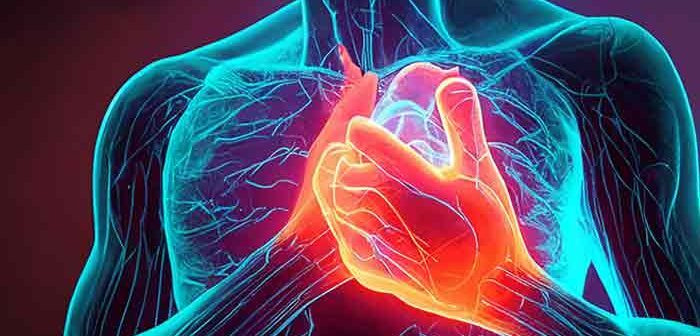People with hidden pockets of fat inside their muscles are at a significantly higher risk of dying or being hospitalized from heart attacks or heart failure, regardless of their body mass index (BMI), according to groundbreaking research published in the European Heart Journal on Monday. This new study challenges the adequacy of traditional measures, such as BMI or waist circumference, in accurately evaluating heart disease risk for everyone.
The research revealed that individuals with higher amounts of fat stored in their muscles are more likely to suffer from damage to the tiny blood vessels serving the heart, known as coronary microvascular dysfunction (CMD). These individuals also face an increased likelihood of death or hospitalization due to heart disease.
Those with high levels of intermuscular fat and evidence of CMD are at an especially elevated risk for death, heart attacks, and heart failure. “Knowing that intermuscular fat raises the risk of heart disease gives us another way to identify people who are at high risk, regardless of their body mass index,” said Professor Viviany Taqueti, Director of the Cardiac Stress Laboratory at Brigham and Women’s Hospital, US.
The study analyzed muscle and various types of fat in 669 participants to understand how body composition influences the small blood vessels of the heart and the future risk of heart failure, heart attack, and death. The participants were followed for approximately six years. In addition to assessing heart function, the research team used CT scans to measure the amounts and location of fat and muscle in each participant’s torso.
The researchers calculated the ratio of intermuscular fat to total muscle plus fat, a measurement they termed the fatty muscle fraction. For every 1 percent increase in the fatty muscle fraction, there was a 2 percent increase in the risk of CMD and a 7 percent increased risk of future serious heart disease, regardless of other known risk factors and BMI. Conversely, individuals with higher amounts of lean muscle had a lower risk, and fat stored under the skin (subcutaneous fat) did not increase the risk.
“Compared to subcutaneous fat, fat stored in muscles may be contributing to inflammation and altered glucose metabolism, leading to insulin resistance and metabolic syndrome. These chronic conditions can damage blood vessels, including those that supply the heart, and the heart muscle itself,” Professor Taqueti explained.
The research team is currently assessing the impact of treatment strategies, including exercise, nutrition, weight-loss drugs, and surgery, on body composition and metabolic heart disease. These efforts aim to lower the risk for individuals with fatty muscles.






